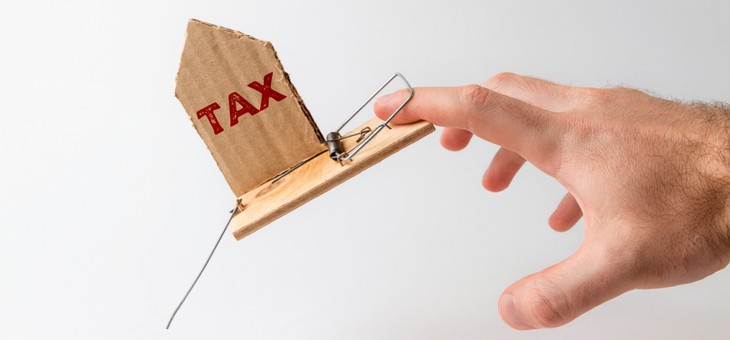The Australian Taxation Office (ATO) has been transparent about its targets when investigating tax returns, and its latest warning is aimed at those making property claims.
Previously, the ATO has warned against those copying and pasting returns from last year and provided information on how it will use data matching to catch out cheats, and now it is warning property investors to make sure their affairs are in order before filing.
When it comes to filling out a tax return on property investments, there are several common tax traps that can either delay refunds or lead to an audit.
Read: Secret super tax
Last financial year over 1.8 million Australians owned rental properties and claimed $38 billion in deductions.
Assistant tax commissioner Tim Loh said the most common mistake that rental property and holiday homeowners made was neglecting to declare all of their income, which included capital gains from selling an investment property.
While it is too late for filling out last year’s tax returns, if you are selling an investment property this year there are several strategies available for reducing your capital gains tax.
Read: Where to get help when you are in debt
“To put it simply, you should expect tax consequences for any property that you earn income from that isn’t your main residence,” Mr Loh said.
“We are expanding the rental income data we receive directly from third-party sources such as sharing economy platforms, rental bond authorities, and property managers.
“We will contact taxpayers about income they’ve received but haven’t included in their tax return. This will mean they need to repay some of their refund.
Read: Happiness linked to how living space is arranged
“The ATO often allows taxpayers who have made genuine errors to amend their returns without penalty. But deliberate attempts to avoid tax on rental income will see the ATO take action,” Mr Loh said.
“People should remember that there’s no such thing as free real estate when it comes to their tax returns. Our data analytics scrutinise returns for rental deductions that seem unusually high. We will ask questions, and this may lead to a delay in processing your return.
“So far we have adjusted more than 70 per cent of the 2019-20 returns selected for a review of rental information.
“Most people we contact about their rental deductions are able to justify their claims. However, there are instances where we have to knock back claims where taxpayers didn’t keep receipts, claimed for personal use, or claimed for ineligible deductions.”
The ATO often rejects claims for interest charges on personal loan amounts and immediate claims for the full amount of capital works (for example, a kitchen renovation), so it is important that you keep good records.
If you take out a loan to buy a rental property and rent it out at market rates, the interest on that loan is deductible. However, if you redraw money from that mortgage for personal use, such as buying a boat, or going on a holiday, you can’t claim the interest on that part of the loan.
Another common mistake is taxpayers claiming capital works on a property as a lump sum, rather than spreading the cost over a number of years. Capital works include a new building or an extension, renovations or structural improvements.
The cost of repairs for wear and tear to the property are deductible immediately if they are to replace or fix existing items, such as curtains, without upgrading them. However, improvements or capital expenses, such as a kitchen renovation are not deductible immediately.
Reduced rent due to COVID-19
The ATO also explains that the situation might be different when filling out tax returns if owners negotiated reduced or deferred rent because of the COVID-19 pandemic.
If that was the case, you only need to declare the rent that your received as income.
If payments were deferred until the next financial year, you do not need to include these payments until you receive them.
Back payments for deferred rent or insurance for lost rent should be declared as income in the financial year in which you receive the amounts.
While your rental income may be reduced, you can still claim normal expenses made on your property as long as the reduced rent is determined at arms’ length and considers current market conditions.
Travel restrictions may have also affected demand for short-term rental properties. Generally, if your plans to rent a property in 2020-21 were the same as previous years, but were disrupted by COVID-19, you will still be able to claim the same proportion of expenses.
This only applies where the property was not used privately. If you, your family or friends stayed at the property for free or at a reduced rate, you won’t be able to claim or will only be able to claim a portion of these expenses.
For more information on rentals, the ATO has provided an investors toolkit to help prepare your tax return.
Did your property investment suffer last year because of COVID? Have you ever received a tax audit? Why not share your thoughts in the comments section below?
If you enjoy our content, don’t keep it to yourself. Share our free eNews with your friends and encourage them to sign up.

